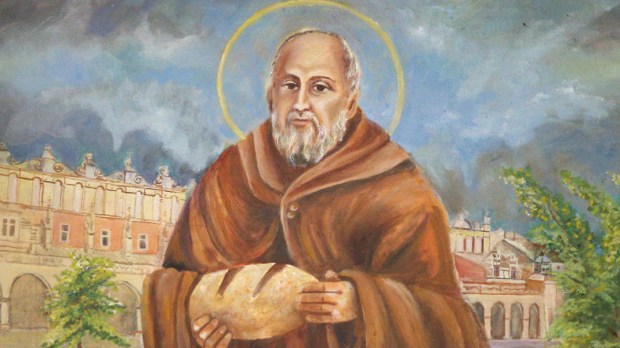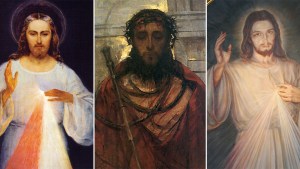Lenten Campaign 2025
This content is free of charge, as are all our articles.
Support us with a donation that is tax-deductible and enable us to continue to reach millions of readers.
One of the most influential saints in St. John Paul II’s life was St. Albert Chmielowski, an advocate for the poor and suffering in Krakow, Poland.
In addition to being a painter, St. Albert also felt called by God to serve the unfortunate in his local community.
St. John Paul II praised his charitable heart when he canonized him on November 12, 1989:
In this tireless, heroic service in favor of the underprivileged he finally found his way. He found Christ. He took upon himself his yoke and his load; and it was not only “one who does charity, ” but became the brother of those he served. Their brother. The “gray brother,” as he was called.
St. Albert was a true brother to the poor and homeless, living with them in a shelter he established.
He even died in that shelter on Christmas Day, December 25, 1916. Spending his last moments with his brothers, the poor.
His example greatly inspired St. John Paul II, who even wrote a play about him, as Filip Mazurczak explains for the National Catholic Register:
In 1949, the young Father Karol Wojtyła wrote a play about him titledOur God’s Brother. A Kracovian urban legend had it that Brother Albert met Vladimir Lenin (who lived in Krakow after being expelled from Russia) and debated him on how to best alleviate poverty. The play features imagined dialogues between the saint and the communist revolutionary (called “the Stranger”), powerfully showing the difference between the Christian and Marxist approach: The former argues that poverty can be overcome by seeing God’s image in the individual, while the latter reduces all to class struggle and argues that the rich must be violently overthrown.
It is fitting that he died on Christmas Day, a day that recalls the humility and poverty of Jesus Christ, born in a stable.
St. Albert was born into new life while in a poor homeless shelter.


